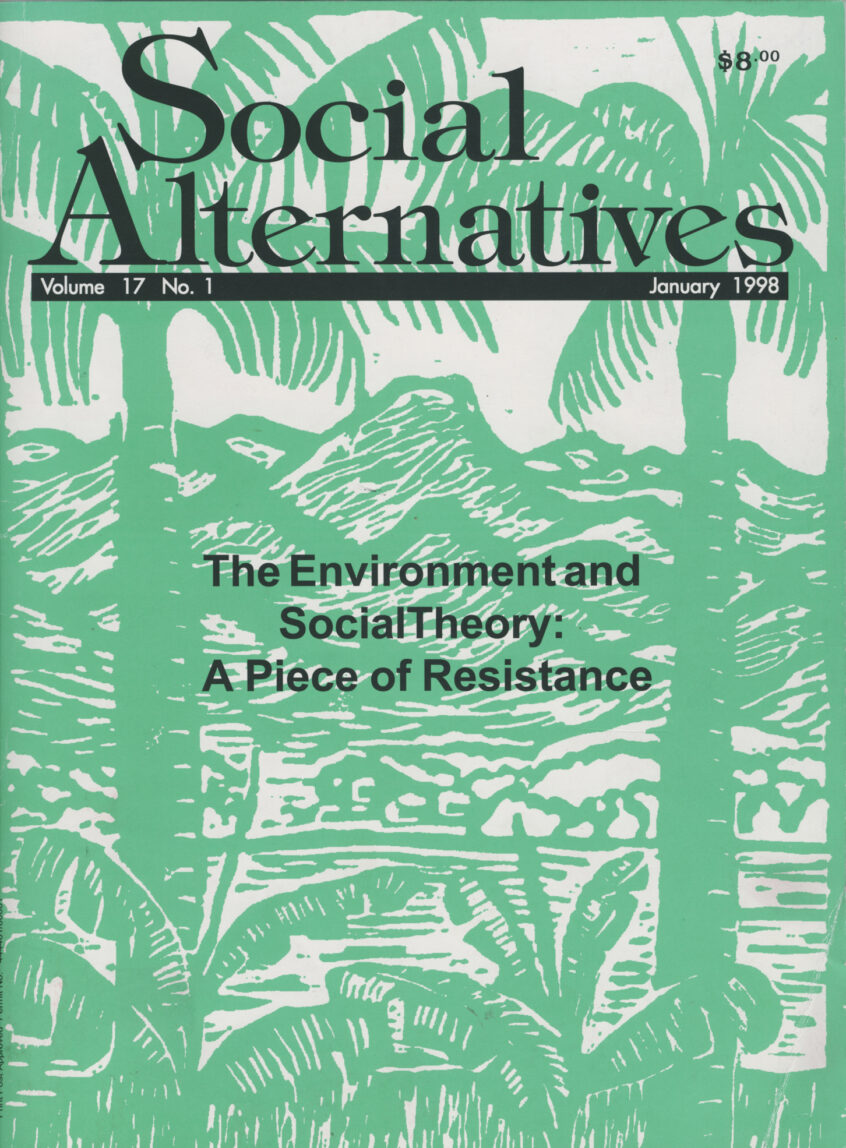Social theory is taken here to refer to various perspectives assuming that the conditions in which knowledge is produced, circulated and maintained contribute to the constitution of that knowledge. Social theory contests the mechanistic, reductive approaches of positivism which have dominated both natural and social sciences, and which continue to characterise much of the teaching, research, policy-making and activism on environmental issues. Moreover, social theory requires a critical reflexivity – an understanding that the teacher or researcher, the policy-maker or activist are produced by and create the ‘climate’ in which knowledge ‘works’ and in which change is either fostered or discouraged. It also challenges conceptions of the environment as external to humanity, as something necessarily prior to and outside of culture.
| Title | Author(s) | ||
|---|---|---|---|
Articles |
|||
| 1 | Editorial | Elaine Stratford | |

